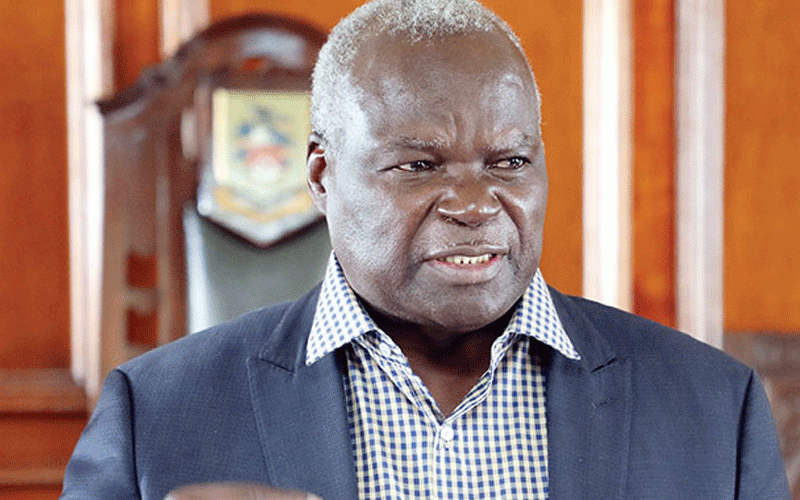
GOVERNMENT says it will keep civil servants’ salaries at 12% of the gross domestic product (GDP), with its growth expected to be the benchmark against which their salaries can be improved, NewsDay can report.
The government this week announced that civil servants had started getting their backdated salaries as it was committed to ensuring a living wage for its workforce and fulfilled its pledge to review salaries upwards.
Public sector workers have also been assured of their usual annual bonus that will be paid next month and in December after a National Joint Negotiating Council meeting with employees on Monday this week.
Teachers, however, rubbished the civil servants salary review, describing it as insignificant.
Government reviewed the salaries to US$364 from US$324 for the lowest paid employee backdated to September.
The wage review represents an increase of just US$40 for each one of the country’s troubled public workforce.
Speaking during the Employers’ Confederation of Zimbabwe 42nd Annual Congress in Victoria Falls yesterday, Public Service, Labour and Social Welfare minister July Moyo said his ministry and the Treasury had agreed that government will not go beyond 12% of the GDP.
He said any country that goes beyond 12% of its GDP in salaries would be inviting trouble for its economy.
- AfDB cuts Zim’s growth projections to 3.5%
- Russia-Ukraine war and the Zimbabwe daily bread
- AfDB cuts Zim’s growth projections to 3.5%
- Russia-Ukraine war and the Zimbabwe daily bread
Keep Reading
“So how do we then make sure that our civil servants are paid adequately? Any country which pays their workers more than 12% of GDP, that economy is in trouble,” Moyo said.
“So we have adhered to it, we have agreed to it. So we say to the Finance minister, go and calculate, sometime, maybe, you can go a little bit beyond that, but let us remain within the 12% of GDP.”
He said government had to adhere to and agree to the structure adding that where there are disagreements there was a need to map a way forward on any issue of disagreement.
“As a government, unlike you, who can measure your productivity in another way? It is who we measure our productivity by, the GDP.
“So the productivity of all of the government, parliament, and judiciary everybody, is to save the economy. And we measure our productivity by the growth of GDP,” the Public Service, Labour and Social Welfare minister said.
“But if the GDP is growing, that means every year our workers will also have higher salaries. It’s the same as your turnover.
“When your turnover is growing, and you say you are going to pay one-third of your turnover to your workers, that means every year they will have something to take home.”
Meanwhile, teachers’ unions have dismissed the increment, which they described as paltry.
Progressive Teachers Union of Zimbabwe president Takavafira Zhou argued that the review was outstanding since the beginning of the second quarter in April 2024.
He also noted the recent devaluation of the local currency in September this year.
“Civil servants, therefore, deserve an adjustment to their salaries in line with the depreciation in ZiG first, and a salary review, second.
“That civil servants did not get an adjustment of the ZiG component and neither did they get a salary increase, is baffling and nauseating,” Zhou said.
He said they had only received the ZiG allowance component.
“Cumulatively, the US dollars and ZiG salary after September 2024 is less than the market value of the monthly salaries before the devaluation,” the union leader said.
Zhou said the greatest challenge with the government was its unilateralism over issues of salaries and conditions of service.
“The government is also unilaterally carrying out a job evaluation that it will impose on its civil servants. An engagement with civil servants could have been more appropriate in generating industrial harmony and productivity,” he said.
“Sadly, the government is acclimated to command and control tactics rather than logical disputation that has traction.”
Amalgamated Rural Teachers Union of Zimbabwe (Artuz) secretary general Robson Chere said their members rejected the paltry increment, which is a product of an illegal joint negotiating platform.
“The ZCPSTU [Zimbabwe Confederation of Public Sector Trade Unions] misrepresented to workers to agree to that bogus outcome of a US$40 increment. This is the same reason why as Artuz, we have been at the forefront in demanding a genuine collective bargaining platform that is in line with our constitution, where genuine negotiations can take place,” Chere said.
“The current so-called outcome of the US$40 increment is a nullity. The exchange rate will wipe away the so-called increment as the bank rate is deliberately fixed below real market rate.”










